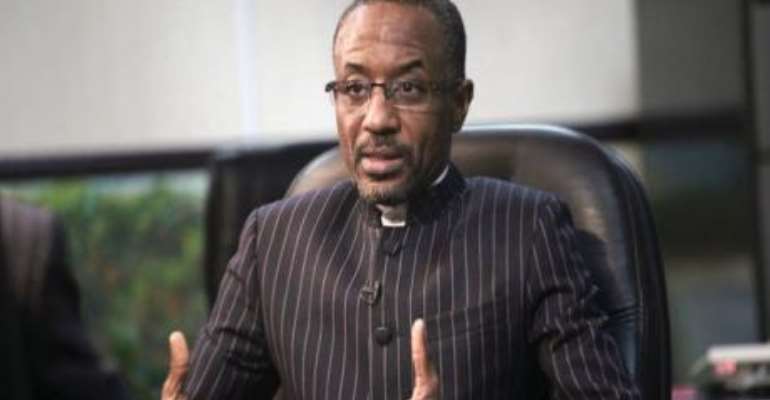BANKERS BACK CBN ON N5000, SAY IT'LL REDUCE INTEREST RATES

Bank managing directors under the aegis of the Bankers Committee have thrown their weight behind the plan by the Central Bank of Nigeria (CBN) to restructure the nation's currency and introduce N5000 notes, saying it would reduce interest rates.
The banks also pledged their commitment to work with the Economic and Financial Crimes Commission (EFCC) to rid the system of fraudulent transactions.
Chairman of the commission Ibrahim Lamorde had Monday raised an alarm that banks were shielding corrupt persons by doctoring or hiding relevant information on them and their transactions, thereby undermining the work of anti-corruption officials
Addressing journalists after its 309th meeting in Abuja yesterday, the Managing Director of UBA Mr Philip Oduoza stated that 'all the cost savings from the restructuring will eventually be passed on to the customers leading to reduction in interest rates.
He argued that 'one of the things that lead to high interest rates is the cost of operations, so as that goes down you will find that the benefits will also go to the customers.'
He added that 'N5000 will definitely reduce cost of doing business in the system. The cost that will be saved by the banking industry from the introduction of N5000 notes will eventually trickle down to the customers. The lending rates of bank is made up of many components once this goes down you will see it in lending rates, if all things are equal. It will be beneficial to the industry, the government and the customers,' he said.
In terms of efficiency and cost reduction to the banking industry, Oduoza noted that 'the currency restructuring of the CBN makes more sense because fewer higher denomination currencies will now fit into ATMs, moving cash between locations will result in less number of runs for the banks.'
On the recent allegation by the Economic and Financial Crimes Commission (EFCC) that banks were frustrating its fight against money laundering, the bankers said they have done a lot to champion anti-money laundering and through the Know Your Customer (KYC) programme.
He exonerated the banks of any wrong doing stressing that they (bankers) have been reporting suspicious transactions.
According to him, 'suspicious transactions are reported and eliminated and only good customers are brought into the banking system, the reports are being filed, as an industry we would like to engage the EFCC to know the specific areas.'
The banks he said have all stood for anti-money laundering but would like to engage the EFCC to know areas for improvements that the industry should look at.
Currently the bankers committee, he said has a standing committee that carries out financial literacy and awareness to both customers and staff but the banking industry would work together with EFCC to find our the specific areas that needs to be addressed.
Restructuring of currency he said is the role of the CBN which has many benefits associated with it. The bankers in lending their support to the CBN plans said the cost of printing a single currency remains the same irrespective of denomination. The UBA boss insisted that the cost of printing higher denomination notes reduces cost of of printing currencies.
However, he pointed out that the CBN or the banks will not impose N5000 notes on anyone, stating that 'it will be based on demand.'
When the CBN spends less to print money the bankers maintained that the surplus will be given back to government to provide infrastructure that will benefit the common man.
The director of corporate communication of the CBN Mr. ugochukwu Okoroafor stated at the event that 'the cost of printing the restructured currency notes will be in the N20 billions.' Coins he said last for about 20 years but notes last for about four to six months before they are reprinted.
